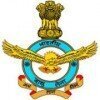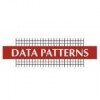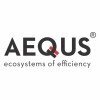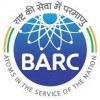Filter interviews by
SOLAR INDUSTRIES INDIA Interview Questions and Answers
50 Interview questions
Solar Group is a leading provider of solar energy solutions, focusing on innovation and sustainability in renewable energy.
Founded in [Year], Solar Group has been at the forefront of solar technology advancements.
They offer a range of products including solar panels, inverters, and energy storage systems.
Solar Group has implemented large-scale solar projects, such as [Example Project], which significantly reduced ...
The monthly plan aims to streamline production, optimize resources, and meet targets efficiently.
Aligns production goals with overall business objectives, e.g., increasing output by 10%.
Facilitates resource allocation, ensuring materials and labor are available when needed.
Helps in forecasting demand, allowing for adjustments in production schedules.
Enables performance tracking against KPIs, such as reducing waste...
Normal probability deals with standard distributions, while angle probability relates to angular measurements in probability contexts.
Normal probability refers to the likelihood of outcomes in a normal distribution, characterized by a bell curve.
Angle probability often pertains to scenarios involving angles, such as in circular statistics or when measuring directional data.
Example of normal probability: The probab...
As a Warehouse Manager, I currently oversee a team of 15 employees, ensuring efficient operations and safety protocols.
Team Size: I manage a team of 15 warehouse staff, including pickers, packers, and forklift operators.
Training: I conduct regular training sessions to enhance skills and ensure safety compliance.
Performance Monitoring: I implement KPIs to track productivity and address any performance issues prompt...
There are several types of inventory, including raw materials, work-in-progress, finished goods, and maintenance supplies.
Raw Materials: Basic materials used in production, e.g., steel for manufacturing.
Work-in-Progress (WIP): Items that are in the production process, e.g., partially assembled cars.
Finished Goods: Completed products ready for sale, e.g., packaged electronics.
Maintenance, Repair, and Operations (MR...
An error is a deviation from accuracy or correctness, often leading to unintended outcomes in processes or systems.
Errors can occur in various forms, such as human errors, system errors, or procedural errors.
Example: A typographical error in a document can lead to miscommunication.
Example: A software bug that causes a program to crash is a system error.
Errors can be classified as critical, major, or minor based on...
Calibration is the process of adjusting and verifying the accuracy of measurement instruments to ensure reliable results.
Ensures measurement accuracy: For example, calibrating a thermometer to ensure it reads the correct temperature.
Involves comparison: Instruments are compared against a standard reference to identify discrepancies.
Regular intervals: Calibration should be performed at regular intervals to maintain...
As a Quality Analyst, I ensured product quality through testing, process improvement, and collaboration with cross-functional teams.
Conducted manual and automated testing to identify defects and ensure software functionality.
Developed and maintained test cases and test scripts, improving test coverage by 30%.
Collaborated with developers and product managers to understand requirements and provide feedback.
Implement...
Previous CTC includes both fixed and variable components.
Previous CTC consisted of a fixed salary component and a variable component based on performance or targets.
For example, if the fixed salary was $50,000 and the variable component was 10% of the annual sales, the total CTC would be $50,000 + (10% of sales).
Estimate target location by considering altitude, speed, wind direction, and gravity.
Consider the altitude of the fighter plane
Factor in the speed of the fighter plane
Take into account the wind direction and speed
Calculate the effect of gravity on the object being dropped
Use mathematical formulas and simulations to estimate the precise location
SOLAR INDUSTRIES INDIA Interview Experiences
63 interviews found
I appeared for an interview in Feb 2025.
(4 Questions)
- Q1. Which type of company roll..?
- Q2. Which type of company work......?
- Q3. Types of products and production..?
- Ans.
Understanding product types and production methods is crucial for effective supervision in any industry.
Types of products can be categorized into consumer goods (e.g., electronics, clothing) and industrial goods (e.g., machinery, raw materials).
Production methods include batch production (e.g., bakery items), mass production (e.g., automobiles), and custom production (e.g., bespoke furniture).
Lean manufacturing focuses...
- Q4. Company provides facility..?
Interview Preparation Tips
(3 Questions)
- Q1. Types of bearing & their uses.
- Ans.
Bearings are mechanical components that reduce friction between moving parts, enhancing efficiency and performance in various applications.
1. Ball Bearings: Used in electric motors and bicycles for smooth rotation.
2. Roller Bearings: Common in heavy machinery and automotive applications for load support.
3. Thrust Bearings: Designed to handle axial loads, used in gearboxes and turbines.
4. Magnetic Bearings: Used in high...
- Q2. Types of valves & their uses
- Ans.
Valves control fluid flow in various applications, each type serving specific functions in systems.
Gate Valve: Used for on/off control, ideal for high-pressure applications.
Globe Valve: Provides good throttling capability, commonly used in flow regulation.
Ball Valve: Offers quick shut-off, widely used in plumbing and gas applications.
Butterfly Valve: Lightweight and compact, suitable for large volume flow control.
Check...
- Q3. Thermodynamics, positive displacement pumps, Reactors, distillation column etc
Interview Preparation Tips
I appeared for an interview in Dec 2024, where I was asked the following questions.
- Q1. Solar company what makes
- Ans.
Solar companies manufacture solar panels and systems that convert sunlight into electricity, promoting renewable energy use.
Solar panels are made from photovoltaic cells that convert sunlight into electricity.
Companies often produce inverters that convert DC electricity from panels to AC for home use.
Some solar companies also manufacture battery storage systems to store excess energy.
Examples include companies like Sun...
- Q2. Production supervisor why work
- Ans.
As a Production Supervisor, I thrive on optimizing processes, leading teams, and ensuring quality in manufacturing operations.
Leadership: I enjoy guiding teams to achieve production goals, like improving efficiency by 20% in my previous role.
Problem-solving: I excel at identifying bottlenecks and implementing solutions, such as redesigning workflows to reduce downtime.
Quality assurance: I prioritize maintaining high st...
I appeared for an interview before Jun 2024, where I was asked the following questions.
- Q1. What do you know about solar group?
- Ans.
Solar Group is a leading provider of solar energy solutions, focusing on innovation and sustainability in renewable energy.
Founded in [Year], Solar Group has been at the forefront of solar technology advancements.
They offer a range of products including solar panels, inverters, and energy storage systems.
Solar Group has implemented large-scale solar projects, such as [Example Project], which significantly reduced carbo...
- Q2. What is the process of recruitment?
- Ans.
The recruitment process involves identifying, attracting, and selecting candidates for job vacancies.
1. Job Analysis: Define the role and responsibilities. Example: Creating a job description for a software engineer.
2. Sourcing Candidates: Use job boards, social media, and networking. Example: Posting on LinkedIn and Indeed.
3. Screening Resumes: Evaluate applications to shortlist candidates. Example: Using ATS software...
I applied via Approached by Company and was interviewed in Nov 2024. There were 2 interview rounds.
General knowledge must be need during position oponinent
(2 Questions)
- Q1. Position need questions
- Q2. Knowledge handling role of position
I appeared for an interview in May 2025, where I was asked the following questions.
- Q1. Permit system, safety related questions
- Q2. Experience of previous company questions
I appeared for an interview in May 2025, where I was asked the following questions.
- Q1. Computer operator in releted
- Q2. Hardware computer operator
Interview Preparation Tips
- Q1. My persnal education& information.
- Q2. Solar is Ecconomic expllosive,industry.
Interview Preparation Tips
I applied via Naukri.com and was interviewed in Jun 2024. There were 2 interview rounds.
(3 Questions)
- Q1. Previous Project details.
- Ans.
Led a team in developing a mobile app for tracking fitness goals and progress.
Managed a team of 5 developers and designers
Implemented gamification features to increase user engagement
Integrated with wearable devices for real-time data tracking
- Q2. My responsibilities
- Q3. Difficulties while executing green field projects.
- Ans.
Green field projects face challenges such as lack of existing infrastructure, resource allocation, and regulatory hurdles.
Lack of existing infrastructure can lead to delays and increased costs.
Resource allocation may be difficult due to competing priorities within the organization.
Regulatory hurdles, such as obtaining permits and approvals, can slow down the project timeline.
Environmental impact assessments may be requ...
(2 Questions)
- Q1. Previous CTC with variable and fixed.
- Ans.
Previous CTC includes both fixed and variable components.
Previous CTC consisted of a fixed salary component and a variable component based on performance or targets.
For example, if the fixed salary was $50,000 and the variable component was 10% of the annual sales, the total CTC would be $50,000 + (10% of sales).
- Q2. Why are you switching.
- Ans.
Seeking new challenges and opportunities for growth.
Looking for a new challenge to further develop my skills and knowledge.
Interested in exploring different industries and gaining diverse experience.
Seeking opportunities for career advancement and personal growth.
Interview Preparation Tips
- Project Management
I appeared for an interview in Mar 2025, where I was asked the following questions.
- Q1. What are the roles and responsibilities associated with this position?
- Ans.
The Production Manager oversees production processes, ensuring efficiency, quality, and timely delivery of products.
Plan and coordinate production schedules to meet deadlines, e.g., creating a timeline for product launches.
Manage resources, including labor and materials, to optimize production efficiency, e.g., reallocating staff during peak seasons.
Ensure compliance with safety and quality standards, e.g., conducting ...
- Q2. What was the objective of the monthly plan?
- Ans.
The monthly plan aims to streamline production, optimize resources, and meet targets efficiently.
Aligns production goals with overall business objectives, e.g., increasing output by 10%.
Facilitates resource allocation, ensuring materials and labor are available when needed.
Helps in forecasting demand, allowing for adjustments in production schedules.
Enables performance tracking against KPIs, such as reducing waste by 5...
Top trending discussions






SOLAR INDUSTRIES INDIA Interview FAQs
Some of the top questions asked at the SOLAR INDUSTRIES INDIA interview -
The duration of SOLAR INDUSTRIES INDIA interview process can vary, but typically it takes about less than 2 weeks to complete.
Tell us how to improve this page.
SOLAR INDUSTRIES INDIA Interviews By Designations
- SOLAR INDUSTRIES INDIA Senior Executive Interview Questions
- SOLAR INDUSTRIES INDIA Production Supervisor Interview Questions
- SOLAR INDUSTRIES INDIA Supervisor Interview Questions
- SOLAR INDUSTRIES INDIA Executive Accountant Interview Questions
- SOLAR INDUSTRIES INDIA Quality Analyst Interview Questions
- SOLAR INDUSTRIES INDIA Executive Interview Questions
- SOLAR INDUSTRIES INDIA Operations Executive Interview Questions
- SOLAR INDUSTRIES INDIA Management Trainee Interview Questions
- Show more
Interview Questions for Popular Designations
Overall Interview Experience Rating
based on 69 interview experiences
Difficulty level
Duration
Interview Questions from Similar Companies
SOLAR INDUSTRIES INDIA Reviews and Ratings
based on 498 reviews
Rating in categories
|
Executive Production
128
salaries
| ₹2.6 L/yr - ₹5.5 L/yr |
|
Senior Executive
125
salaries
| ₹3.5 L/yr - ₹8.2 L/yr |
|
Executive
115
salaries
| ₹2.6 L/yr - ₹7 L/yr |
|
Assistant Manager
97
salaries
| ₹5.2 L/yr - ₹11.7 L/yr |
|
Production Supervisor
95
salaries
| ₹1.8 L/yr - ₹4.3 L/yr |

Indian Army

Indian Air Force

Tata Advanced Systems

Collins Aerospace
- Home >
- Interviews >
- SOLAR INDUSTRIES INDIA Interview Questions














